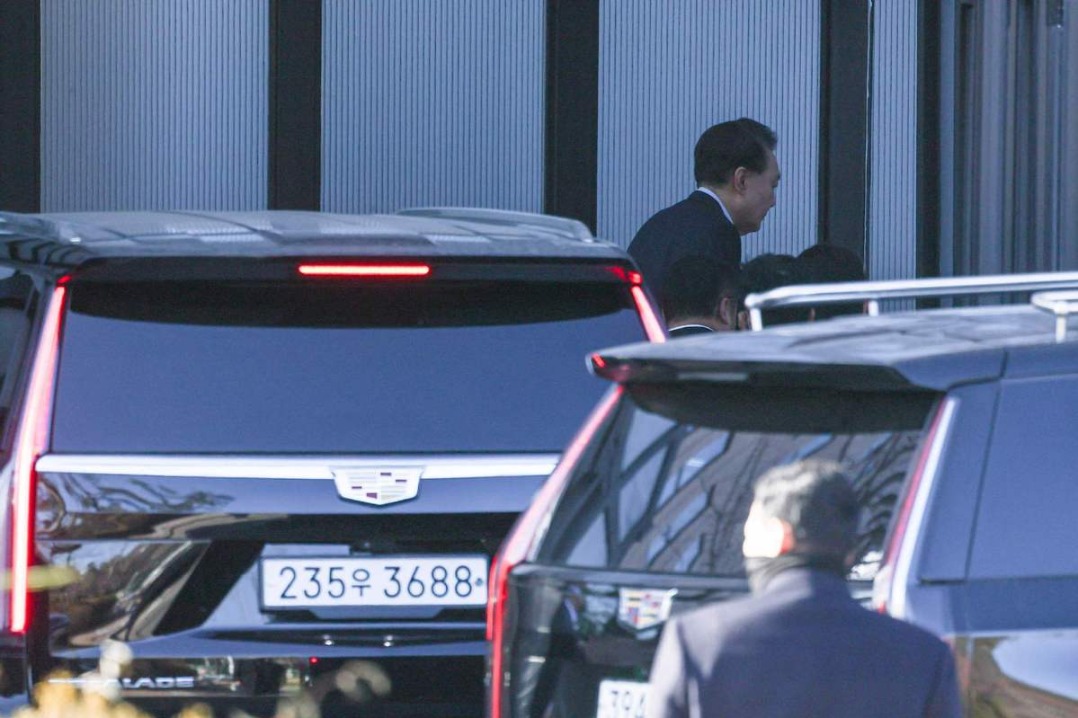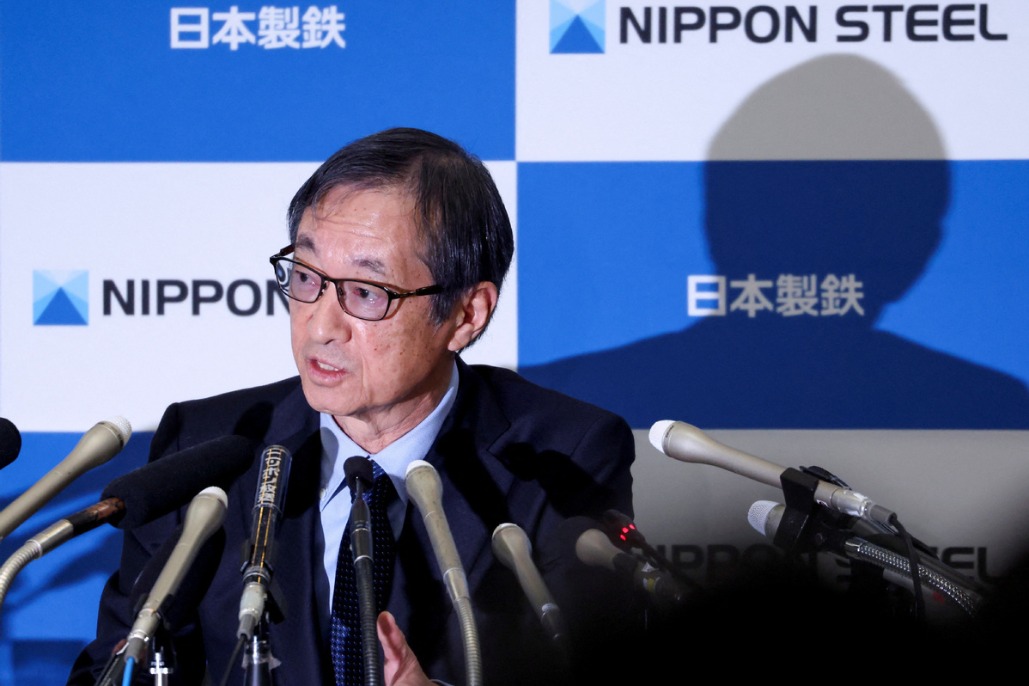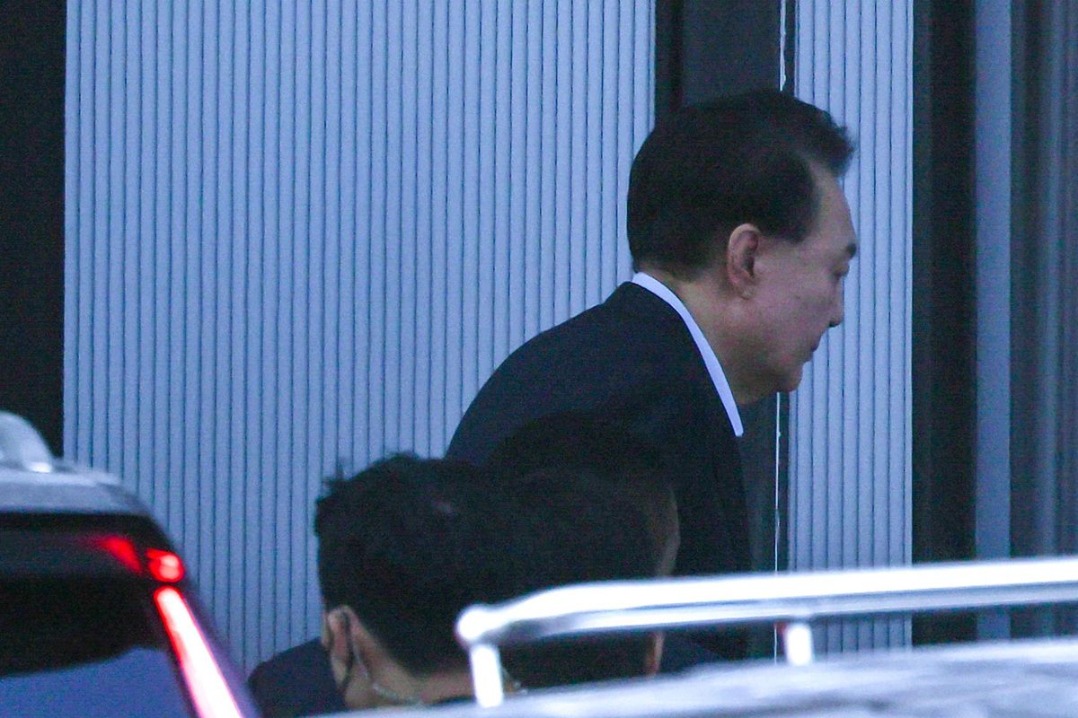Getting up to speed: Chinese baseball players learn the ropes in Texas

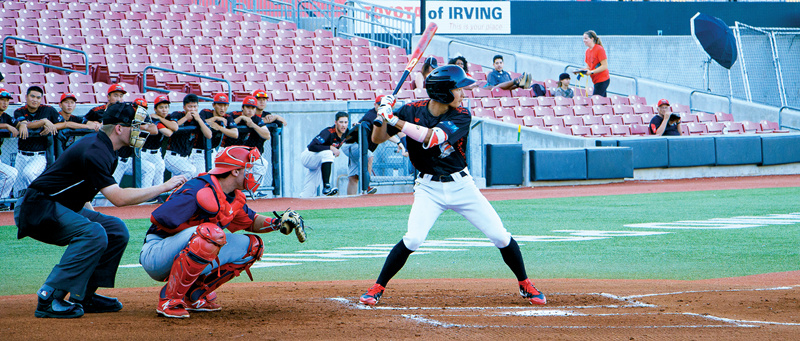
It was a typically scorching-hot summer afternoon in Texas.
At around 3:30 pm, just as the temperature hit its high for the day of 100 degrees Fahrenheit, about 10 players from the Beijing Shougang Eagles arrived at the home field of the Texas AirHogs professional baseball team in Grand Prairie, about 20 miles west of Dallas.
Dressed in bright red China team T-shirts, they began batting and fielding practice under the white hot Texas sun, getting ready for a night game against the SaltDogs of Lincoln, Nebraska.
After a couple of hours of drills, the Chinese players took a break and changed into their AirHogs uniforms.
By 7:05 pm, the stadium was basking in the golden glow of evening lights and the air had cooled down with an occasional gentle breeze.
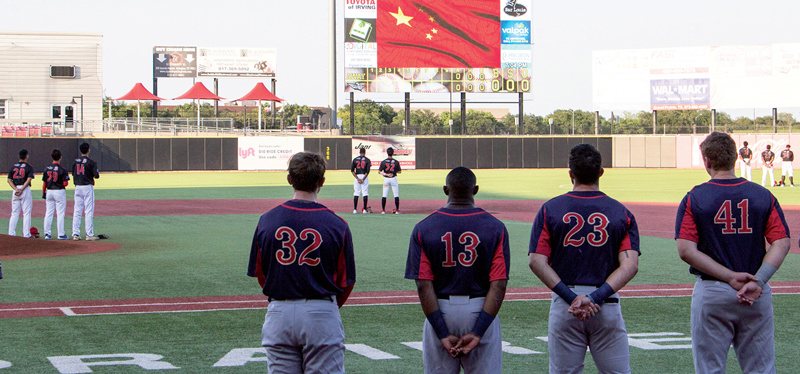
After a few announcements, the Chinese national anthem was played as the Chinese national flag appeared on the big screen. The US national flag and anthem followed suit.
Then the game against SaltDogs began, with five Chinese players among the starting lineup of 10 for the AirHogs.
In fact, professional Chinese baseball players have been playing for the AirHogs since May.
"We call the program 'Dances with Wolves'," said Chinese coach Zhu Bin. "We hope that by playing in the games of the US independent baseball league, our players will get better and stronger. And they have gotten better and stronger. "
The arrangement was made between the AirHogs, Shougang Sports and the Chinese Baseball Association as a way to train players of Chinese National Baseball Team and prepare them for the World Baseball Cup and the 2020 Olympics in Tokyo.
Yan Xiaoping, a director with the Jiangsu Sports Administration and one of the team leaders, said that funding for the Chinese athletes to play with the AirHogs came from Shougang Group in Beijing and the State General Administration of Sports of China. They are known as the Beijing Shougang Eagles in the US.
A total of more than 30 Chinese baseball players have participated in the program, Yan said. About 20 of them left two weeks ago to take part in the Asian Games going on right now in Indonesia.

Those players had played 70 games prior to leaving for the Asian Games, said Yan. A few stayed behind and some new players joined recently to continue the training until Sept 3.
Aside from preparing for the 2020 Olympics, the Chinese National Baseball Team hopes to learn something else too, Yan said.
"China's baseball history is some 20 years short and there are only about 10 baseball diamonds nationwide. We are relatively inexperienced and we can learn a lot from US baseball in terms of training, professionalism and market development," Yan said.
By all accounts, the Chinese players have made remarkable progress in three months.
"When they first arrived, they were not accustomed to the speed of the game, particularly the velocity of the pitchers," said Kevin Joseph, one of the coaches.
"There was a bit of a learning curve in the beginning. The hitters were having a hard time adjusting to pitchers," Joseph said.
The difference at the beginning and end was amazing for the players who left for the Asian Games, according to Joseph.
"The first game of the season and the last game before they left were against the best team of the season — the Sioux City [Explorers]. That team commented on the amazing difference between the first and last game. The last game was all Chinese players against Sioux City. They lost 3 to 2, but it was very close. They made amazing progress in all facets — pitching, hitting and fielding," said Joseph.
"I think it's very beneficial to the Chinese National Team to be challenged, pushed and to rise to the occasion," he added.
Joseph had lived in China for a few years to coach youth baseball, primarily in Tianjin. He speaks fluent Chinese and serves as translator for the team.
He described the Chinese players' routine: they arrive each afternoon around 3 pm to do batting and fielding practice. Take some time off, then begin to play a game at night. Games usually last about three hours.
Other times, they travel to other cities to play.
In addition, three days a week the players do about an hour of weight training in the morning before practice.
For the Chinese players who were accustomed to playing about 20 professional games a year in China, the work load in Texas was tremendous — they had to play 100 games during their 109 days here — almost one game a day.
Joey Zanaboni, announcer for AirHogs, has watched the team grow.
"Evolution is the law of baseball," he said. "People grow, they adapt, and they survive. Someone was telling me that Chinese team is here dancing with wolves. I just love that because this is a wild league. This is the West, this is Texas!
"In the past three months I have seen the team grind on the skillet of the white hot stove of Texas turf. It takes survivors, it takes people who want to grow and want to improve to put their will to the test," he said.
The players only get nine days off over the three and half months. It's both physically and mentally grinding. "You have to find a way to keep going and I think everybody has their own way," Zanaboni said.
With a 21-61 season, it hasn't been easy for the AirHogs. "But that's why you do it, to improve," Zanaboni added.
He credited head coach John McLaren, who left with the other group for the Asian Games, for doing a ton to put a program together for the Chinese players to learn. Toward the end, one Chinese pitcher could go toe to toe with one of the best pitchers in the league, he said.
McLaren, who coached in Major Baseball as manager of the Seattle Mariners, has been involved in Chinese baseball since 2011.
Chinese pitcher Zhang Tao has been in Grand Prairie since the very beginning in May. He said the hardest thing was dealing with the constant defeat early on.
"We could not win at all at the beginning," he said. "It became very discouraging sometimes. It wore us down and made us feel exhausted both physically and in spirit. However, the coaches have been very encouraging and helped us keep going."
The much more intensive game schedule was hard at the beginning but quite beneficial, Zhang said.
"I learned more ways and types of pitching, positions and changes of the ball trajectories. My endurance has improved greatly. My pitching has become more accurate and faster. Later we began to win some games, and that was very encouraging," he said.
Zhang said he hopes to maintain the intensity and preserve what he has learned here after going back to China through practice.
Second baseman Liang Pei is 20 years old and grew up in Japan before becoming a member of the Chinese National Baseball Team last year. He joined the AirHogs a couple of weeks ago.
Liang said he was excited to play on the well-maintained and beautiful baseball fields in the US. He also finds the players' skills superior to those of the Chinese players.
"I could not catch up with the speed at first and it was rather hard for me. After four, five games, I began to get the hang of it and the rhythm of the game," he said.
Liang said that while language and cultural differences do exist, the US players are patient in teaching them whenever they ask. "They are very diligent at what they do and their attitude is very positive," he said.
Local resident Christopher DiMarco brought his visiting brother and a couple of nephews from Philadelphia to watch the game. He was duly impressed by Liang, who managed a couple of good catches about a half hour into the game.
"They are doing great, that was a heck of a jam to get out of," DiMarco said. "The second baseman has been crazy good combining great running with catches. He got that and nobody scored it. That's always fun to watch — a bit of anxiety and a bit of excitement."
Laura Streeb, another fan, said it was her first time seeing the Chinese players play this season. "They are doing a great job, I hope they will keep on being on the team," she said.
Coach Zhu said that the second team is doing better than he expected. "We have won two games so far and it has a positive impact on them," he said.
Aside from the well run facilities and business operations, Zhu said he was also impressed by the ritual of playing the national anthems and raising the national flags at the beginning of each game.
"We all promote patriotism and the way the US does it gives us great ideas. They often have someone singing the American national anthem and we prepared a recording. However, at an away game, they invited a local Chinese to sing the Chinese national anthem. It was really nice," Zhu said.
Chinese players will be back next year to play another season with the Texas AirHogs, according to Yan.
Contact the writer at [email protected]
















